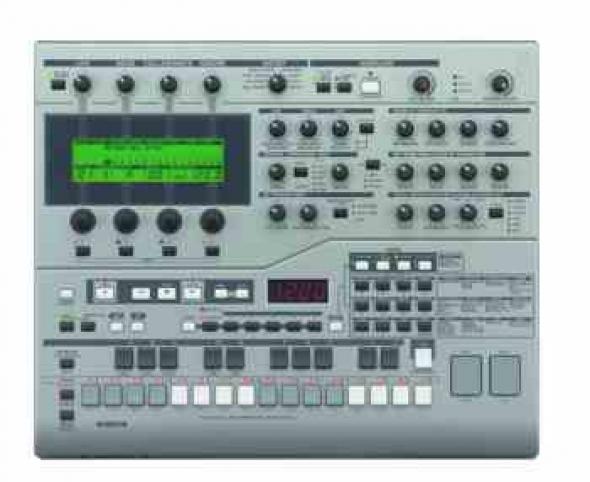Free as the Air
Eddie Prévost, percussionist and pioneer of improvised music – notably as co-founder of the seminal ’60s band, AMM – takes aim at the increasingly ubiquitous practice of sampling
I’m sitting there on stage with my drum kit, barrel drum, cymbals, gong and bits and pieces. Beating and bowing. I’m listening to the other musicians. Then I hear a sound that is familiar yet wrong. I’ve heard it before but it’s out of phase, out of joint, displaced, dislocated. It’s me but I’m not doing it. The phantom sampler has struck.
The conventional wisdom is that it is flattering to be copied. There was a time when copying was so difficult that one admired anyone who got near to the original. Now anyone – with the right gear – can do it and you can hardly tell the difference. This is because there is no difference! The time frame can be so condensed (almost real time) that the copy can come out almost before the originator is aware of what they have done in the first place. The train seems to reach its destination before the engine has left the station!
All this can be slightly unnerving. A new relationship has developed in which there has been no negotiated social contract. I’m not so worried about any financial drop out by unlicensed use of my intellectual property. I can’t make much money out of the sounds in the first place, so it seems churlish to object to anybody else trying. No. What bugs me is ‘I’ am being selectively cannibalised, and, it’s behind my back (if you know what I mean?). Somehow my sounds, once they are made, are considered to be no longer part of me. They go out of my control. They are deemed lost. Being lost means that they can be ‘found’ and used without a ‘by your leave.’ Recording a sound somehow confers or transfers its property status.
There was a good deal of mischievous humour attached to ‘plunder phonics.’ It took – mostly from commercially popular sources – existing recorded material: treating and incorporating it in a subversive way into another art medium. It poked fun at the pop artist who was being plundered. They were placed in a position of some cultural discomfort.
But are sounds made ‘free’ by releasing them into the environment? Can a sampler claim to have ‘found’ this source material. Claiming that something has been found is no proof that it was lost or that its original owner has no continuing rights or responsibility as to what happens to it thereafter. So far samplers are assuming rights in the absence of any counter claim. It feels like being mugged. It has been argued that such activity is justified as a response to the expropriation and mass exploitation by powerful capitalists. Unfortunately, a by-product of this action is to unconsciously recommend that it serves as a model for our relations with everyone. All people and their products become valid sources for unregulated and abusing expropriation.
Let me run this past you. I reckon that if someone, without my permission, can use my sounds then they give me license to intercept their sonic output. Is there not an implicit contract here? A mutuality? If anyone takes unasked then surely the taker should be prepared for some kind of natural reciprocity. Yet can you imagine what would happen if I moved the speakers or turned the volume down on a fellow musician who was carrying out sampling? All hell would be let loose. I would be infringing their rights of ‘free’ expression.
Eddie Prévost <prevost AT matchless.sonnet.co.uk>
Mute Books Orders
For Mute Books distribution contact Anagram Books
contact@anagrambooks.com
For online purchases visit anagrambooks.com








